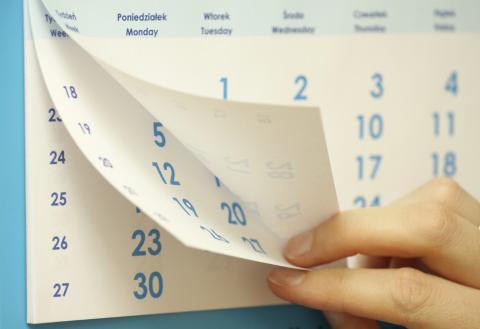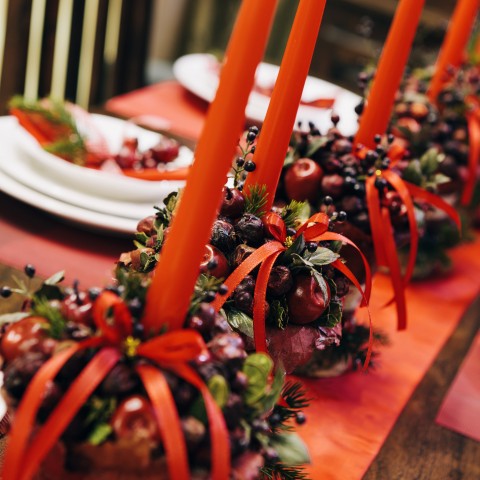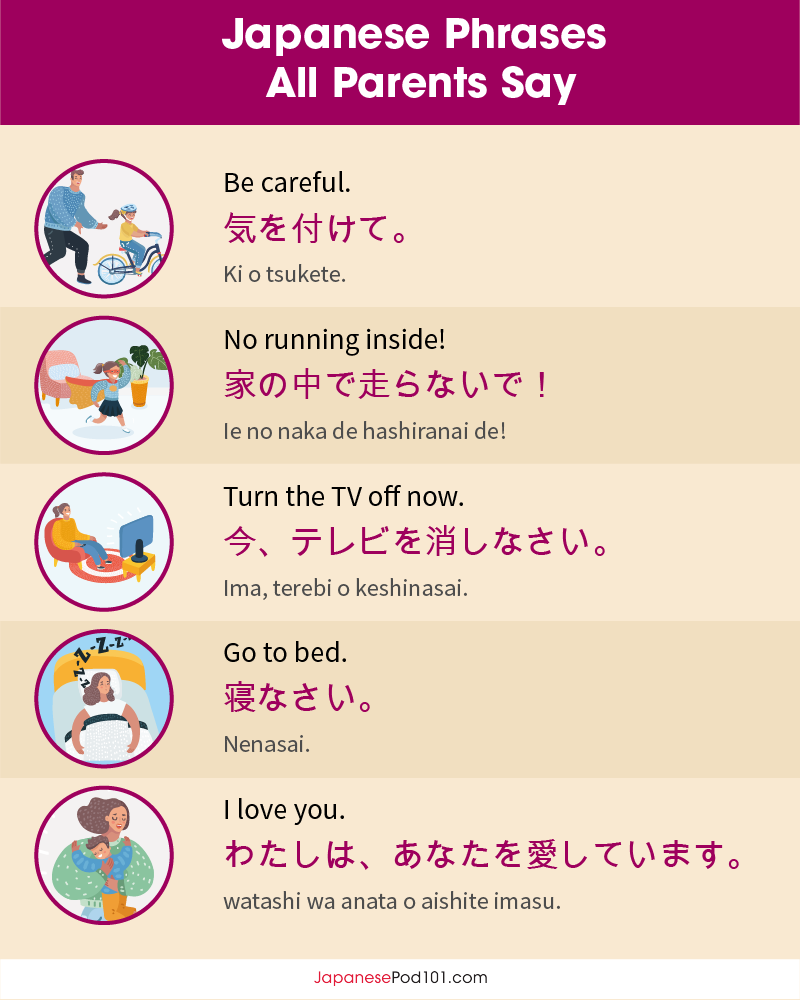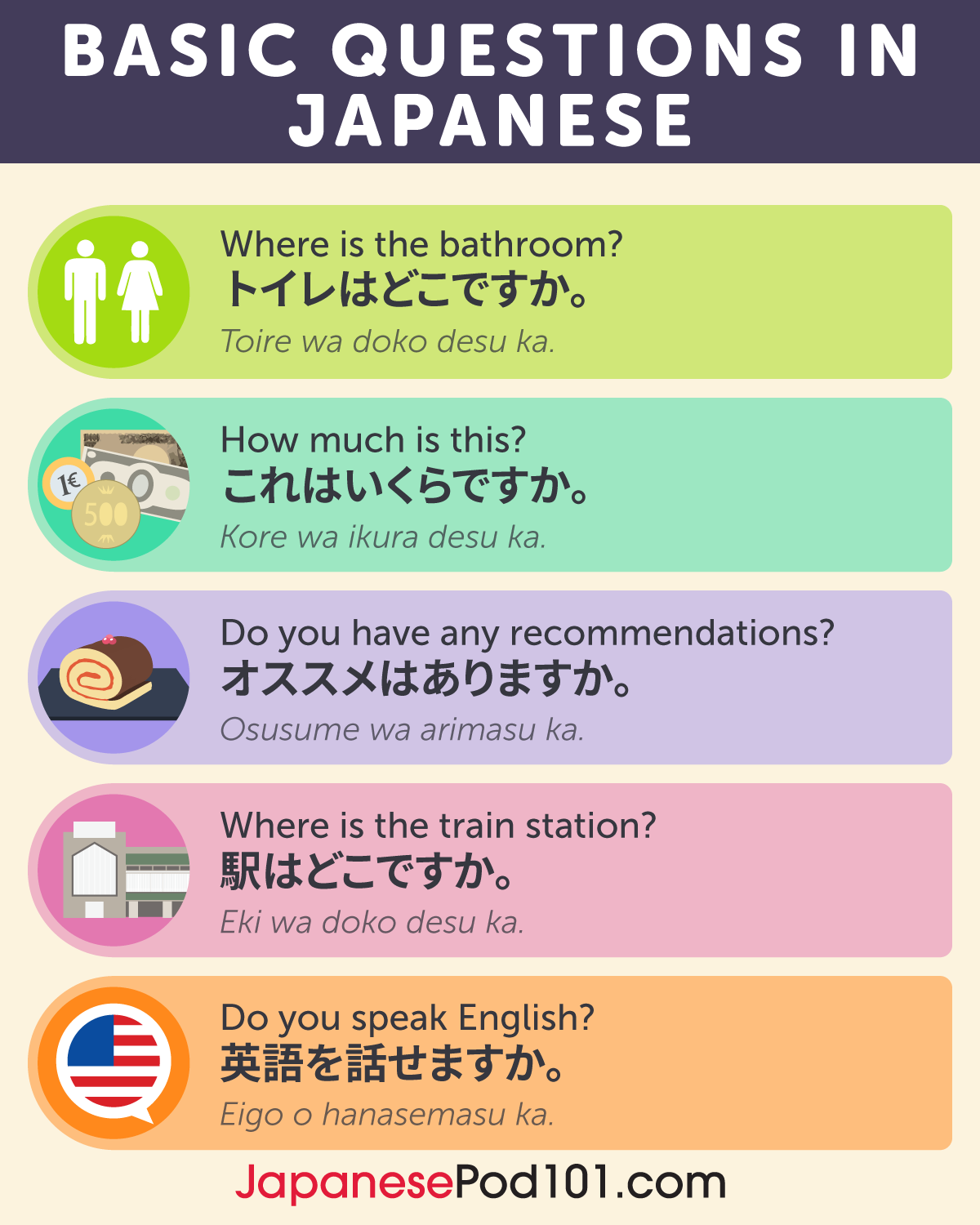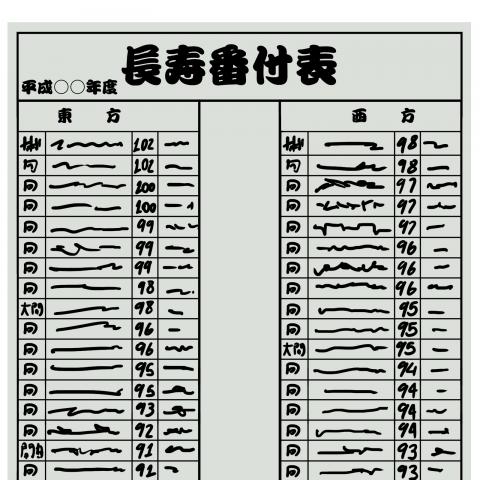
You’re learning to speak Japanese, and it’s going well. Your confidence is growing! So much so that you feel ready to share your experiences on social media—in Japanese.
At Learn Japanese, we make this easy for you to get it right the first time. Post like a boss with these phrases and guidelines, and get to practice your Japanese in the process.

1. Talking about Your Restaurant Visit in Japanese
Eating out is fun, and often an experience you’d like to share. Take a pic, and start a conversation on social media in Japanese. Your friend will be amazed by your language skills…and perhaps your taste in restaurants!
Mamoru eats at a restaurant with his friends, posts an image of it, and leaves this comment:

POST
Let’s break down Mamoru’s post.
友だちと、しゃぶしゃぶ食べ放題なう。 (Tomodachi to, shabushabu tabehōdai nau.)
“At all-you-can-eat shabushabu with my friends now.”
1- 友だちと (Tomodachi to)
First is an expression meaning: “With my friends.”
It’s common to include information about who you’re spending time with in a social media post. However, eating or drinking alone is also common in Japan, and a lot of restaurants accommodate single customers.
2- しゃぶしゃぶ食べ放題なう (Shabushabu tabehōdai nau.)
Then comes the phrase – “At all-you-can-eat shabushabu now..”
All-you-can-eat cuisine is very popular in Japan. When you go to Japanese style bars, you’ll often see a menu that says all-you-can-eat or all-you-can-drink. A lot of Japanese people upload a post while they are still at the place, and share the latest status of themselves with others by emphasising that they’re “now” at the place.
COMMENTS
In response, Mamoru’s friends leave some comments.
1- 本当、おいしかったね。 (Hontō, oishikatta ne. )
His girlfriend, Hazuki, uses an expression meaning – “Indeed, it was delicious. ”
This expression shows you are appreciative of the quality of the food.
2- うわー、誘ってくれよ! (Uwā, sasotte kure yo!)
His college friend, Shō, uses an expression meaning – “What, why didn’t you invite me!”
With this expression, Shō is being playful.
3- こんど行くとき私も連れて行って〜。 (Kondo iku toki watashi mo tsurete ittē.)
His high school friend, Yui, uses an expression meaning – “You gotta take me with you next time.”
This phrase expresses a wish.
4- 高そう。。 (Takasō..)
His girlfriend’s nephew, Yamato, uses an expression meaning – “Looks expensive…”
Perhaps Yamato is a bit cynical? But he could also be appreciative of the restaurant or the food’s quality.
VOCABULARY
Find below the key vocabulary for this lesson:
友だち (tomodachi): “friend”
しゃぶしゃぶ (shabushabu): “shabushabu (thin slices of beef and a variety of vegetables parboiled in hot soup usually eaten with sesame sauce or sour sauce called Ponzu)”
食べ放題 (tabehōdai): “all-you-can-eat”
本当 (hontō): “indeed”
おいしい (oishii): “delicious”
誘う (sasou): “to invite”
高い (takai): “expensive”
連れて行く (tsurete iku): “to take someone with someone “
So, let’s practice a bit. If a friend posted something about having dinner with friends, which phrase would you use?
Now go visit a Japanese restaurant, and wow the staff with your language skills!
2. Post about Your Mall Visit in Japanese
Another super topic for social media is shopping—everybody does it, most everybody loves it, and your friends on social media are probably curious about your shopping sprees! Share these Japanese phrases in posts when you visit a mall.
Hazuki shops with her sister at the mall, posts an image of it, and leaves this comment

POST
Let’s break down Hazuki’s post.
新しくできたお店に妹と。ものすごい列。。 (Atarashiku dekita o-mise ni imōto to. Monosugoi retsu…)
“With my sis at the store that recently opened. What a super long line..”
1- 新しくできたお店 (Atarashiku dekita o-mise)
First is an expression meaning: “Newly opened store.”
In Japan, sharing hot news and the latest information a common thing to do on social media. When you go to a recently-opened store that’s been mentioned on TV or on social media, it’s a perfect chance to show the world that you already went there before anyone else did!
2- ものすごい列 (Monosugoi retsu)
Then comes the phrase – “What a super long line.”
Passing information by word of mouth is also one of the popular uses of social media in Japan. For example, you could check other people’s posts to calculate a less crowded time to visit the place!
COMMENTS
In response, Hazuki’s friends leave some comments.
1- またショッピング? (Mata shoppingu?)
Her nephew, Yamato, uses an expression meaning – “Shopping again?”
Yamato is making conversation with this phrase..
2- わたしも昨日ここにいた! (Watashi mo kinō koko ni ita!)
Her high school friend, Manami, uses an expression meaning – “I was here yesterday, too!”
This shares a detail of your life – good conversation starters!
3- また服が増えるのか。。 (Mata fuku ga fueru no ka…)
Her boyfriend, Mamoru, uses an expression meaning – “Oh, there we have more clothes…
4- え、本当に妹さん?大人っぽい。 (E, hontō ni imōto-san? Otonappoi.)
Her college friend, Shō, uses an expression meaning – “No, is that really your younger sister? She looks mature.”
Use this expression to demonstrate surprise and even appreciation.
VOCABULARY
Find below the key vocabulary for this lesson:
新しくできた (atarashiku dekita): “newly opened”
妹 (imōto): “younger sister”
ものすごい (monosugoi): “incredible, super”
また (mata): “again”
いる (iru): “to be, to exist”
増える (fueru): “to increase”
さん (san): “polite name suffix, similar to Mr. or Mrs.”
大人っぽい (otonappoi): “mature”
So, if a friend posted something about going shopping, which phrase would you use?
3. Talking about a Sport Day in Japanese
Sport events, whether you’re the spectator or the sports person, offer fantastic opportunity for great social media posts. Learn some handy phrases and vocabulary to start a sport-on-the-beach conversation in Japanese.
Mamoru plays with his friends at the beach, posts an image of it, and leaves this comment:

POST
Let’s break down Mamoru’s post.
今年こそ、絶対勝つ! (Kotoshi koso, zettai katsu!)
“This year, for sure, we must win!”
1- 今年こそ (Kotoshi koso)
First is an expression meaning “This year for sure.”
Japanese people love sports, and often gather to play games after work or school. Watching sports games together with friends at a public space is also a big thing in Japan. Some of the most popular sports are baseball and soccer.
2- ぜったい勝つ! (Zettai katsu!)
Then comes the phrase – “we must win!.”
This expression is used when you’re cheering for a team while watching a sports game. This phrase is also used when going into a match. It shows a strong determination. You can also replace the verb with other verbs.
COMMENTS
In response, Mamoru’s friends leave some comments.
1- がんばれー! (Ganbarē!)
His high school friend, Yui, uses an expression meaning – “Go for it!”
Use this expression to show your enthusiastic support for your team.
2- どこのビーチですか? (Doko no bīchi desu ka?)
His neighbor, Yūko, uses an expression meaning – “Where’s the beach at?”
This is a question to determine the location of the game. So, to gather information, use this phrase.
3- けっきょく結果はどうだったの?笑 (Kekkyoku kekka wa dō datta no?wara)
His girlfriend’s high school friend, Manami, uses an expression meaning – “So what was the result after all? lol”
This question shows inquisitiveness.
4- 大学時代を思い出すなあ。 (Daigaku jidai o omoidasu nā.)
His supervisor, Norio, uses an expression meaning – “Reminds me of our college life.”
Somewhat nostalgic, Norio holds a senior position at work, and is perhaps a bit old-fashioned.
VOCABULARY
Find below the key vocabulary for this lesson:
今年 (kotoshi): “this year”
こそ (koso): “for sure”
絶対 (zettai): “unconditional”
勝つ (katsu): “to win”
がんばれ (ganbare): “Go for it”
けっきょく (kekkyoku): “after all”
結果 (kekka): “result”
思い出す (omoidasu): “to remember, V1”
Which phrase would you use if a friend posted something about sports?
But sport is not the only thing you can play! Play some music, and share it on social media.
4. Share a Song on Social Media in Japanese
Music is the language of the soul, they say. So, don’t hold back—share what touches your soul with your friends!
Hazuki shares a song she just heard at a party, posts an image of the artist, and leaves this comment:

POST
Let’s break down Hazuki’s post.
おすすめの1曲! (Osusume no ikkyoku!)
“The one song I recommend!”
1- おすすめの (Osusume no __)
First is an expression meaning “__ to recommend.”
Among the Japanese, it is pretty common to share something you like or recommend on social media. Add any noun right after this phrase to make a recommendation.
2- 1曲 (ikkyoku)
Then comes the phrase – “one song.”
In Japanese, there are various types of counters you have to add after numbers. This counter is only one of them and is used to count “songs” and “music.”
COMMENTS
In response, Hazuki’s friends leave some comments.
1- うわー、なつかしい。 (Uwā, natsukashii.)
Her high school friend, Manami, uses an expression meaning – “Wow, how nostalgic.”
This expresses an opinion about Hazuki’s choice of music.
2- 名曲ですね。 (Meikyoku desu ne.)
Her neighbor, Yūko, uses an expression meaning – “Classic, indeed.”
This warmhearted comment is a response to the previous one about the song.
3- 古すぎ。。 (Furusugi..)
Her nephew, Yamato, uses an expression meaning – “Too old..”
Yamato again doesn’t hold back on expressing his opinion. He finds the song dated.
4- ぼくも昔このバンドの大ファンだったな。 (Boku mo mukashi kono bando no daifan datta na.)
Her supervisor, Norio, uses an expression meaning – “I used to be a huge fan of this band. ”
Again a nostalgic comment, with Norio reminiscing about his earlier taste in music.
VOCABULARY
Find below the key vocabulary for this lesson:
おすすめ (osusume): “recommendation”
曲 (kyoku): “song, piece of music, counter for songs”
なつかしい (natsukashii): “missed, desired, nostalgic”
名曲 (meikyoku): “famous song”
古い (furui): “old (not person); Adj(i)”
昔 (mukashi): “long ago”
バンド (bando): “band”
大ファン (daifan): “huge fan”
Do you have a favorite song you would share? And what would you say to a friend posting a song?
Now you know how to start a conversation about a song or a video on social media!
5. Japanese Social Media Comments about a Concert
Still on the theme of music—visiting live concerts and shows just have to be shared with your friends. Here are some handy phrases and vocab to wow your followers in Japanese!
Mamoru goes to a concert, posts an image of it, and leaves this comment:

POST
Let’s break down Mamoru’s post.
毎年恒例の夏フェスです。 (Maitoshi kōrei no natsufesu desu.)
“Summer music festival like every year.”
1- 毎年恒例の (Maitoshi kōrei no )
First is an expression meaning: “Annual, like every year.”
This expression is commonly used when you want to share a tradition you never fail to honor every year. In this sentence, you can see he’s emphasizing that going to a summer music festival has become a tradition for him.
2- 夏フェスです (natsufesu desu)
Then comes the phrase – “summer music festival.”
It’s become more and more popular to go to summer music festivals in Japan. Then you will see a lot of pictures, videos and status updates on social media about them. You can replace the noun before “festival” with other nouns, for example, “winter”, “beach” or “rock” as well.
COMMENTS
In response, Mamoru’s friends leave some comments.
1- 楽しそう! (Tanoshisō!)
His high school friend, Yui, uses an expression meaning – “Looks fun!”
Yui is making conversation and seems pretty positive and optimistic.
2- すごい人だな。 (Sugoi hito da na.)
His college friend, Shō, uses an expression meaning – “What a huge crowd of people. ”
This conveys a sense of surprise.
3- いっきに3キロやせた気分。。 (Ikki ni san-kiro yaseta kibun..)
His girlfriend, Hazuki, uses an expression meaning – “I feel like we lost 3 kilos all at once..”
Hazuki is sharing a feeling.
4- よく飽きないね〜 (Yoku akinai nē)
His girlfriend’s nephew, Yamato, uses an expression meaning – “No idea why you don’t get tired of it~”
Yamato is not the most positive of people, is he? He’s commenting on this post with an opinion.
VOCABULARY
Find below the key vocabulary for this lesson:
毎年 (maitoshi): “every year”
恒例 (kōrei): “regular, customary”
夏フェス (natsufesu): “summer music festival”
すごい (sugoi): “amazing, great, fabulous”
一気に (ikki ni): “at once, in one go”
痩せる (yaseru): “to lose weight”
気分 (kibun): “feeling”
飽きる (akiru): “to get tired of, to lose interest in; V2”
If a friend posted something about a concert, which phrase would you use?
6. Talking about an Unfortunate Accident in Japanese
Oh dear. You broke something by accident. Tell friends about it by using these Japanese phrases in a thread on social media. Or maybe just to let your friends know why you are not contacting them!
Hazuki accidentally breaks her mobile phone, and leaves this comment:

POST
Let’s break down Hazuki’s post.
ついにやってしまった。。 (Tsui ni yatte shimatta.. )
“I finally did it.. ”
1- ついに (Tsui ni )
First is an expression meaning “Finally.”
Japanese use this word when something that they expected would happen someday has finally happened.
2- やってしまった (yatte shimatta)
Then comes the phrase – “I did it.”
You can say this expression when you have done something bad. It’s a good opening line to catch people’s attention as well.
COMMENTS
In response, Hazuki’s friends leave some comments.
1- どこで、なんでこんなことに? (Doko de, nande konna koto ni?)
Her college friend, Shō, uses an expression meaning – “Where and how did that happen?”
Her friend is curious as to how Hazuki broke her phone, and is also making conversation.
2- えー!これはショック。 (Ē! Kore wa shokku.)
Her high school friend, Manami, uses an expression meaning – “Oh no, this is a shock. ”
This expression shows sympathy with the accident.
3- この前も壊したばかりなのに!? (Kono mae mo kowashita bakari na noni!?)
Her nephew, Yamato, uses an expression meaning – “You just broke (another) one recently!”
Don’t you feel you want to slap cynical Yamato?! He seems to be a glass-half-full person.
4- まさか会社のものではないよな・・・? (Masaka kaisha no mono de wa nai yo na…?)
Her supervisor, Norio, uses an expression meaning – “It’s not a company phone, is it…?”
Norio feels anxious about this accident and shows it with this question.
VOCABULARY
Find below the key vocabulary for this lesson:
ついに (tsui ni): “finally”
どこ (doko): “where”
なんで (nande): “why”
ショック (shokku): “shocking”
この前 (kono mae): “some time ago, recently”
壊す (kowasu): “to break”
まさか (masaka): “by no means, never (used before a negation as an exclamation) “
会社 (kaisha): “company, office”
If a friend posted something about having broken something by accident, which phrase would you use?
So, now you know how to describe an accident in Japanese. Well done!
7. Chat about Your Boredom on Social Media in Japanese
Sometimes, we’re just bored with how life goes. And to alleviate the boredom, we write about it on social media. Add some excitement to your posts by addressing your friends and followers in Japanese!
Mamoru gets bored at home, and leaves this comment:

POST
Let’s break down Mamoru’s post.
暇だなあ。つまんない。 (Hima da nā. Tsumannai.)
“I have nothing to do. I’m so bored. ”
1- 暇だなあ。 (Hima da nā.)
First is an expression meaning: “I have nothing to do..”
You can also use this expression when you want someone to ask you out but are too shy to directly say it.
2- つまんない。 (Tsumannai.)
Then comes the phrase – “I’m so bored..”
This is the most common expression to say you’re bored in Japanese in a casual way. You can often hear teenagers use this phrase at school.
COMMENTS
In response, Mamoru’s friends leave some comments.
1- 花見に行こうよ。 (Hanami ni ikō yo. )
His high school friend, Yui, uses an expression meaning – “Let’s go to the cherry blossom viewing.”
Yui makes an optimistic suggestion.
2- 外で運動したらどうですか? (Soto de undō shitara dō desu ka?)
His neighbor, Yūko, uses an expression meaning – “Why don’t you exercise outside?”
And the neighbour makes a friendly suggestion.
3- 新宿で飲もうぜ! (Shinjuku de nomō ze!)
His college friend, Shō, uses an expression meaning – “Let’s drink in Shinjuku!”
Use this expression to show you are feeling frivolous.
4- 私も。。遊ばない? (Watashi mo.. Asobanai?)
His girlfriend, Hazuki, uses an expression meaning – “Me too.. Wanna hang out?”
Use this expression to show you are feeling empathy.
VOCABULARY
Find below the key vocabulary for this lesson:
暇 (hima): “time to spare, free time”
つまんない (tsumannai): “casual expression of “I’m bored””
花見 (hanami): “cherry blossom viewing, flower viewing”
外 (soto ): “outside”
運動する (undō suru): “to exercise; V3”
新宿 (Shinjuku): “Shinjuku, the prefectural capital of Tokyo “
飲む (nomu): “to drink;V1”
遊ぶ (asobu): “to hang out; V1”
If a friend posted something about being bored, which phrase would you use?
Still bored? Share another feeling and see if you can start a conversation!
8. Exhausted? Share It on Social Media in Japanese
Sitting in public transport after work, feeling like chatting online? Well, converse in Japanese about how you feel, and let your friends join in!
Hazuki feels exhausted after a long day at work, posts an image of herself looking tired, and leaves this comment:

POST
Let’s break down Hazuki’s post.
あー疲れた! (Ā tsukareta!)
“Uh, I’m exhausted!”
1- あー (Ā)
First is an expression meaning “Uh.”
This interjection is often used to express a sigh before you start a sentence. In casual settings like social media, it’s common for Japanese people to write interjections down as well as the actual context.
2- 疲れた! (tsukareta!)
Then comes the phrase – “I’m exhausted!.”
This is one of the most commonly-used phrases in Japanese, both on and offline. You’re going to hear many people saying this phrase after work or school on the way back home.
COMMENTS
In response, Hazuki’s friends leave some comments.
1- 今週は長かったな。。 (Konshū wa nagakatta na..)
Her supervisor, Norio, uses an expression meaning – “This week felt longer..”
Use this expression to show you are feeling empathy.
2- お疲れさま! (Otsukare-sama!)
Her boyfriend, Mamoru, uses an expression meaning – “Well done! ”
But Hazuki’s boyfriend chooses to be encouraging in his comment.
3- やっと花金だね。 (Yatto hanakin da ne.)
Her college friend, Shō, uses an expression meaning – “Thank God it’s finally Friday!”
Another post of commiseration and empathy.
4- たまには休まないと。 (Tamani wa yasumanai to.)
Her nephew, Yamato, uses an expression meaning – “You gotta get some rest. ”
Yamato likes to state the obvious.
VOCABULARY
Find below the key vocabulary for this lesson:
疲れる (tsukareru): “to tire, to get tired”
今週 (konshū): “this week”
長い (nagai): “long”
お疲れさま (otsukare-sama): “thank you, that’s enough for today, greeting at workplace”
やっと (yatto): “yay, finally, at last”
花金 (hanakin): “Thank God it’s Friday. TGIF.”
たまに (tama ni ): “once in a while, occasionally”
休む (yasumu): “to rest, to have a break”
If a friend posted something about being exhausted, which phrase would you use?
Now you know how to say you’re exhausted in Japanese! Well done.
9. Talking about an Injury in Japanese
So life happens, and you managed to hurt yourself during a soccer game. Very Tweet-worthy! Here’s how to do it in Japanese.
Mamoru suffers a painful injury, posts an image of it, and leaves this comment:

POST
Let’s break down Mamoru’s post.
練習中に骨折。。痛い。 (Renshūchū ni kossetsu.. Itai.)
“Broke my leg during practice.. It hurts.”
1- 練習中に骨折。。 (Renshūchū ni kossetsu..)
First is an expression meaning: “Broke my leg during the practice…”
This is an example of an expression ending with a noun, which is often used in the headlines of newspaper articles or on TV news.
2- 痛い。 (Itai.)
Then comes the phrase – “It hurt.”
This is a must-know phrase when you go to a dentist or any clinic in Japan. When something hurts, say this phrase out loud.
COMMENTS
In response, Mamoru’s friends leave some comments.
1- 痛そう。お大事に。 (Itasō. O-daiji ni.)
His neighbor, Yūko, uses an expression meaning – “Ouch. Get well soon.”
Use this expression to show you are feeling warmhearted.
2- うわ、グロいな。 (Uwa, guroi na.)
His college friend, Shō, uses an expression meaning – “Holy smokes, gross.”
This is an exclamation and an opinion all at once.
3- すぐ治るといいね。 (Sugu naoru to ii ne.)
His high school friend, Yui, uses an expression meaning – “Get well soon!”
Use this expression to wish your injured friend well.
4- 無理しないで、安静にするんだぞ。 (Muri shinai de, ansei ni suru n da zo.)
His supervisor, Norio, uses an expression meaning – “Don’t strain yourself. Take a good rest.”
This expression shows concern and caring.
VOCABULARY
Find below the key vocabulary for this lesson:
練習中 (renshūchū): “during practice; in the middle of practice”
骨折 (kossetsu): “bone fracture”
痛い (itai): “painful, hurt”
お大事に (o-daiji ni): “Bless you, get well soon”
うわ (uwa): “Whoa, holy smokes, oh my gosh”
治る (naoru): “to heal, to get cured”
無理する (muri suru): “to take something too far, to overdo something”
安静にする (ansei ni suru): “to rest, to be calm”
If a friend posted something about being injured, which phrase would you use?
We love to share our fortunes and misfortunes; somehow that makes us feel connected to others.
10. Starting a Conversation Feeling Disappointed in Japanese
Sometimes things don’t go the way we planned. Share your disappointment about this with your friends!
Hazuki feels disappointed about today’s weather, posts an image of it, and leaves this comment:

POST
Let’s break down Hazuki’s post.
暑すぎる。。お願いだから、早く秋になって。 (Atsusugiru.. Onegai da kara, hayaku aki ni natte.)
“It’s too hot today.. For God’s sake, turn to autumn already, please.”
1- 暑すぎる。。 (Atsusugiru..)
First is an expression meaning “It’s too hot…”
Japanese people are not the biggest fans of sunlight. If you look at trendy Japanese magazines, you will see having light skin is often considered more attractive. Being tanned and brown as a chestnut is not as attractive as it is in many western countries. When you visit Japan in summer, you will see a lot of Japanese ladies with a sunshade and sunblock groves walking down the streets!
2- お願いだから、早く秋になって。 (Onegai da kara, hayaku aki ni natte.)
Then comes the phrase – “For God’s sake, turn to autumn already, please..”
This Japanese expression for “for God’s sake” is frequently used when you are desperately in need of something. By writing this line at the beginning of a sentence, you can emphasize that you really need whatever follows.
COMMENTS
In response, Hazuki’s friends leave some comments.
1- ほんと!湿気もすごい。 (Honto! Shikke mo sugoi.)
Her neighbor, Yūko, uses an expression meaning – “I know right! Massive humidity, too.”
This expression shows commiseration and empathy.
2- 今日はスーツのジャケットは着られないな。 (Kyō wa sūtsu no jaketto wa kirarenai na.)
Her supervisor, Norio, uses an expression meaning – “Today, I can’t wear a suit (anymore).”
Norio agrees with the general sentiment that it’s a very hot day, sharing a personal detail about his preferred attire.
3- これからもっと暑くなるらしいけどね。 (Kore kara motto atsuku naru rashii kedo ne.)
Her nephew, Yamato, uses an expression meaning – “Looks like it’s going to get even hotter, though.”
Trust Yamato to be the one who brings even worse news. He doesn’t seem like a very optimistic, positive person!
4- 汗がとまらない。。 (Ase ga tomaranai..)
Her boyfriend, Mamoru, uses an expression meaning – “I can’t stop sweating..”
Hazuki’s boyfriend partakes in the conversation by sharing a personal detail.
VOCABULARY
Find below the key vocabulary for this lesson:
暑い (atsui): “hot”
お願いだから (onegai da kara): “Come on, for God’s sake”
秋 (aki): “fall, autumn”
湿気 (shikke): “humidity”
今日 (kyō): “today”
着る (kiru): “to wear”
もっと (motto): “more”
とまる (tomaru): “stop”
How would you comment in Japanese when a friend is disappointed?
Not all posts need to be about negative feelings and experiences, though!
11. Talking about Your Relationship Status in Japanese
Don’t just change your relationship status in Settings, talk about it!
Mamoru changes his status to “In a relationship”, posts an image of him and Hazuki, and leaves this comment:

POST
Let’s break down Mamoru’s post.
今日で付き合って1ヶ月!ラブラブです。 (Kyō de tsukiatte ikkagetsu! Raburabu desu.)
“Today is 1 month since we started dating. We’re in love.”
1- 今日で付き合って1ヶ月! (Kyō de tsukiatte ikkagetsu!)
First is an expression meaning: “Today is one month since we started dating!.”
In Japan, you can often see couples counting the number of months they’ve been together for, then making it an anniversary and posting about it on social media.
2- ラブラブです。 (Raburabu desu.)
Then comes the phrase – “We’re in love.”
Although there’s an expression meaning “lovey-dovey”, it’s not very common for Japanese people to show affection such as kissing and hugging in public. Never show too much affection in front of your Japanese girlfriend or boyfriend’s parents! Thismight get a little confusing and embarrassing.
COMMENTS
In response, Mamoru’s friends leave some comments.
1- うそだ!! (Uso da!!)
His college friend, Shō, uses an expression meaning – “No way!!”
This is a playful and teasing phrase to make conversation.
2- おめでとう!彼女かわいいね! (Omedetō! Kanojo kawaii ne!)
His high school friend, Yui, uses an expression meaning – “Congrats! Your girlfriend is cute!”
Here, Yui complements his friend on his girlfriend’s appearance.
3- さて、いつまで続くかな? (Sate, itsu made tsuzuku ka na?)
His girlfriend’s nephew, Yamato, uses an expression meaning – “Well, let’s see how long it lasts?”
Don’t be the Yamato in any conversation…! Real wet blanket, hey?
4- 職場恋愛か。。 (Shokuba ren’ai ka..)
His supervisor, Norio, uses an expression meaning – “Office romance, huh..”
Norio is expressing surprise over this relationship.
VOCABULARY
Find below the key vocabulary for this lesson:
付き合う (tsukiau): “to keep company with, to go out with; V1”
ラブラブ (raburabu): “lovey-dovey”
おめでとう (omedetō): “Congrats”
彼女 (kanojo): “girl, she, girlfriend”
かわいい (kawaii): “pretty, cute, lovely, charming :Adj(i)”
さて (sate): “Well, now, anyway”
続く (tsuzuku): “to last, to be continued”
職場恋愛 (shokuba ren’ai): “office romance”
What would you say in Japanese when a friend changes their relationship status?
Being in a good relationship with someone special is good news – don’t be shy to spread it!
12. Post about Getting Married in Japanese
Wow, so things got serious, and you’re getting married. Congratulations! Or, your friend is getting married, so talk about this in Japanese.
Hazuki is getting married today, so she eaves this comment:

POST
Let’s break down Hazuki’s post.
いよいよ結婚式です。ドキドキ。 (Iyoiyo kekkonshiki desu. Dokidoki.)
“Finally getting married. Nervous and excited.”
1- いよいよ結婚式です。 (Iyoiyo kekkonshiki desu.)
First is an expression meaning “Finally getting married.”
In Japan, there are two common types of weddings: one is western style with a church ceremony, and the other is Japanese traditional style where the celebration is proceeded in a shrine. Note that a western style wedding at a church doesn’t necessarily mean the couple is Christian. A lot of non-Christian Japanese people prefer to have a wedding at a church.
2- ドキドキ。 (Dokidoki.)
Then comes the phrase – “Nervous and excited.”
This expression can show both excited and nervous feelings at the same time. It’s commonly used to describe feelings before an important event.
COMMENTS
In response, Hazuki’s friends leave some comments.
1- おめでとうございます。末永くお幸せに! (Omedetō gozaimasu. Suenagaku o-shiawase ni! )
Her supervisor, Norio, uses an expression meaning – “Congratulations. Have a long and loving life together!”
What a warm-hearted, positive wish!
2- おめでとう!あとでブーケは私に投げてね。 (Omedetō! Ato de būke wa watashi ni nagete ne.)
Her high school friend, Manami, uses an expression meaning – “Congrats! Throw the bouquet to me later, will ya?”
Manami is being the clown and wants Hazuki to throw her the hand bouquet. In many wedding traditions, when you catch the bride’s hand bouquet, it means you’re getting married next.
3- 結婚?!全然知らなかった。。 (Kekkon?! Zenzen shiranakatta.. )
Her college friend, Shō, uses an expression meaning – “Getting married?! I had no idea.. ”
Use this expression to show you are feeling surprised.
4- 守は幸せ者だねー! (Mamoru wa shiawasemono da nē!)
Her husband’s high school friend, Yui, uses an expression meaning – “Mamoru is one lucky guy! ”
Basically, Yui is giving the bridegroom a compliment with this expression. He thinks Hazuki is a very fine bride, and expresses his appreciation this way.
VOCABULARY
Find below the key vocabulary for this lesson:
いよいよ (iyoiyo): “finally, more and more”
結婚式 (kekkonshiki): “wedding ceremony”
ドキドキ (dokidoki): “excited and nervous”
おめでとうございます (omedetō gozaimasu): “Congratulations”
末永く (suenagaku): “For many years to come”
おめでとう (omedetō): “Congrats”
投げる (nageru): “to throw”
幸せ者 (shiawasemono): “lucky guy, person”
How would you respond in Japanese to a friend’s post about getting married?
For the next topic, fast forward about a year into the future after the marriage…
13. Announcing Big News in Japanese
Wow, huge stuff is happening in your life! Announce it in Japanese.
Mamoru finds out he and his wife are going to have a baby, posts an image of his pregnant wife, and leaves this comment:

POST
Let’s break down Mamoru’s post.
来年パパになります。早く会いたいな。 (Rainen papa ni narimasu. Hayaku aitai na.)
“I’ll be a dad next year. Wanna see the baby sooner.”
1- 来年パパになります。 (Rainen papa ni narimasu.)
First is an expression meaning “I’ll be dad next year..”
This is a common, simple line to use when you just found out you’re becoming a father and want to let the world know. InJapan, it’s tradition to use this only before you have your first child.
2- 早く会いたいな。 (Hayaku aitai na.)
Then comes the phrase – “I want to see him sooner.”
In Japanese, we don’t have an exact translation for “I miss you” or “Can’t wait” that sounds natural. Instead, we say “I want to see (you) sooner” in Japanese. If you’re in a long-distance relationship with a Japanese partner, you could also use this expression as a way to say you miss a person.
COMMENTS
In response, Mamoru’s friends leave some comments.
1- おめでとう!!楽しみだね! (Omedetō!! Tanoshimi da ne!)
His high school friend, Yui, uses an expression meaning – “Congrats!! Isn’t that exciting!”
Use this expression to show you are feeling optimistic.
2- やったー、新しいいとこが増える! (Yattā, atarashii itoko ga fueru!)
His wife’s nephew, Yamato, uses an expression meaning – “Yay, a new cousin will be added!”
For a change, Yamato is really happy.
3- 女の子?男の子? (Onnanoko? Otokonoko?)
His college friend, Shō, uses an expression meaning – “Girl or boy?”
Shō wants to know details!
4- いろいろ準備しないとね。 (Iroiro junbi shinai to ne.)
His wife, Hazuki, uses an expression meaning – “Gotta prepare a lot of stuff.”
Hazuki shows a realistic view of the matter, as she knows a lot of work is lying ahead of them.
VOCABULARY
Find below the key vocabulary for this lesson:
来年 (rainen): “next year”
早く (hayaku): “fast, quickly, soon”
会う (au): “to meet; V1”
楽しみ (tanoshimi): “fun, excitement”
新しい (atarashii): “new ;-i adjective”
いとこ (itoko): “cousin”
増える (fueru): “to increase”
準備する (junbi suru): “to prepare”
Which phrase would you choose when a friend announces their pregnancy on social media?
So, talking about a pregnancy will get you a lot of traction on social media. But wait till you see the responses to babies!
14. Posting Japanese Comments about Your Baby
Your bundle of joy is here, and you cannot keep quiet about it! Share your thoughts in Japanese.
Hazuki plays with her baby, posts an image of it, and leaves this comment:

POST
Let’s break down Hazuki’s post.
新しい家族が増えました。ゆきこと言います。 (Atarashii kazoku ga fuemashita. Yukiko to iimasu.)
“One new family member is added. She’s named Yukiko.”
1- 新しい家族が増えました。 (Atarashii kazoku ga fuemashita.)
First is an expression meaning: “One new family member is added.”
It’s almost like a must-do thing for Japanese couples to post a baby picture when they first give birth to one. This expression is one of the most common lines to use when you share the news of having a baby on social media. It is simple yet it is cute, and heartwarming.
2- ゆきこと言います。 (Yukiko to iimasu.)
Then comes the phrase – “She’s named Yukiko.”
A lot of Japanese people include the name of the new born baby in a post. Sometimes they also explain the origin of the name and the meaning of the chosen characters (kanji).
COMMENTS
In response, Hazuki’s friends leave some comments.
1- かわいすぎる〜!手も小さい。。 (Kawaisugirū! Te mo chiisai..)
Her high school friend, Manami, uses an expression meaning – “Too cute! Her hand is tiny too..”
Use this expression to show you are feeling excited.
2- よく頑張ったな。おめでとう。 (Yoku ganbatta na. Omedetō.)
Her college friend, Shō, uses an expression meaning – “Great job. Congrats. ”
A warm-hearted compliment and congratulation.
3- ゆきこに早く会わせて〜! (Yukiko ni hayaku awasetē!)
Her nephew, Yamato, uses an expression meaning – “Let me see Yukiko soon!”
Yamato is keen to meet his new cousin.
4- ご出産おめでとう。元気そうな赤ちゃんで何より。 (Go-shussan omedetō. Genki sō na aka-chan de nani yori.)
Her supervisor, Norio, uses an expression meaning – “Congratulations on her birth. I can’t be any happier that she looks like a healthy baby.”
Norio is sharing warmhearted congratulations and feelings about the baby.
VOCABULARY
Find below the key vocabulary for this lesson:
家族 (kazoku): “family”
と言います (to iimasu): “to be named”
手 (te): “hand”
早く (hayaku): “soon”
出産 (shussan): “birth”
元気な (genki na): “healthy, fine, good”
赤ちゃん (aka-chan): “baby”
何より (nani yori): “more than anything”
If your friend is the mother or father, which phrase would you use on social media?
Congratulations, you know the basics of chatting about a baby in Japanese! But we’re not done with families yet…
15. Japanese Comments about a Family Reunion
Family reunions – some you love, some you hate. Share about it on your feed.
Mamoru attends a family gathering, posts an image of it, and leaves this comment:

POST
Let’s break down Mamoru’s post.
久しぶりに親戚の集まり。甥っ子が大きくなってる。。 (Hisashiburi ni shinseki no atsumari. Oikko ga ōkiku natte ru..)
“Family gathering for the first time in forever. My nephew has gotten big..”
1- 久しぶりに親戚の集まり。 (Hisashiburi ni shinseki no atsumari.)
First is an expression meaning “Family gathering for the first time in forever.”
This Japanese expression for “for the first time in forever” can be used when you did something that hasn’t been done in ages. Japanese people get together with families usually on New Year’s and Bon Festival holidays in August. When they gather, they usually eat a lot and drink a lot just like many families in other countries do.
2- 甥っ子が大きくなってる。。 (Oikko ga ōkiku natte ru..)
Then comes the phrase – “My nephew has gotten (all) big..”
One of the things you’d often comment at the family gathering is how your nephew or younger family members who were small before grew a lot bigger now. You can replace “nephew” with another word to refer to other family members or guests.
COMMENTS
In response, Mamoru’s friends leave some comments.
1- 次会うときにはもう大人になってるかもね。 (Tsugi au toki ni wa mō otona ni natte ru kamo ne.)
His wife, Hazuki, uses an expression meaning – “He might be all grown up the next time we see him.”
Use this expression to show you are feeling sensitive.
2- 懐かしいな。みなさん元気? (Natsukashii na. Mina-san genki?)
His high school friend, Yui, uses an expression meaning – “Nostalgic. How are you all?”
Use this expression to share your feelings of nostalgia.
3- 大家族ね! (Daikazoku ne!)
His neighbor, Yūko, uses an expression meaning – “What a big family!”
Yūko is expressing surprise and, perhaps, appreciation for the size of the family.
4- お母さん全然変わってないな。 (O-kā-san zenzen kawatte nai na.)
His college friend, Shō, uses an expression meaning – “Your mom hasn’t changed at all.”
This is a warm-hearted compliment to Hazuki’s mother and the way she looks.
VOCABULARY
Find below the key vocabulary for this lesson:
久しぶりに (Hisashiburi ni): “for the first time in forever”
親戚 (shinseki): “relative”
集まり (atsumari): “gathering”
甥っ子 (oikko): “nephew”
大人 (otona): “adult”
大家族 (daikazoku): “big family”
お母さん (o-kā-san): “mother”
変わる (kawaru): “to change”
Which phrase is your favorite to comment on a friend’s photo about a family reunion?
16. Post about Your Travel Plans in Japanese
So, Hazuki is going on holiday. Do you know how to post and leave comments in Japanese about being at the airport, waiting for a flight?
Hazuki waits at the airport for her flight, posts an image of it, and leaves this comment:

POST
Let’s break down Hazuki’s post.
これからタイに行ってきまーす! (Kore kara Tai ni ittekimāsu!)
“Off to Thailand now!”
1- これから (Kore kara )
First is an expression meaning “(from) now.”
Add this expression at the beginning of a sentence when you want to indicate that you’re about to do something.
2- タイに行ってきまーす! (Tai ni ittekimāsu!)
Then comes the phrase – “off to Thailand!.”
This is a common expression to use when you’re on your way to somewhere to do something. Japanese people on social media often write this line before they go on a trip.
COMMENTS
In response, Hazuki’s friends leave some comments.
1- いいなあ。本場のタイ料理楽しんでね。 (Ii nā. Honba no Tai ryōri tanoshinde ne.)
Her neighbor, Yūko, uses an expression meaning – “Jealous. Enjoy the authentic Thai food.”
Yūko wishes to be in Hazuki’s shoes – a warmhearted comment.
2- お土産よろしく! (O-miyage yoroshiku!)
Her college friend, Shō, uses an expression meaning – “I’m expecting a souvenir!”
Making conversation, Shō pretends to be a demanding friend.
3- いつまで?私も来週行くよ。 (Itsu made? Watashi mo raishū iku yo.)
Her high school friend, Manami, uses an expression meaning – “Until when? I’m going next week.”
Here, Manami is sharing information about her own travels that could mean a meet-up with Hazuki in Thailand.
4- 楽しんでね! (Tanoshinde ne!)
Her husband’s high school friend, Yui, uses an expression meaning – “Have fun!”
A common well-wish.
VOCABULARY
Find below the key vocabulary for this lesson:
これから (kore kara): “from now”
タイ (Tai): “Thailand”
に行ってきます (ni ittekimasu): “off to …”
本場 (honba): “home, best place”
料理 (ryōri): “food as in dishes, cuisine”
楽しむ (tanoshimu): “to enjoy oneself; V1”
お土産 (o-miyage): “souvenir”
来週 (raishū): “next week”
Choose and memorize your best airport phrase in Japanese!
Hopefully the rest of the trip is better!
17. Posting about an Interesting Find in Japanese
So maybe you’re strolling around at your local market, and find something interesting. Here are some handy Japanese phrases!
Mamoru finds an unusual item at a local market, posts an image of it, and leaves this comment:

POST
Let’s break down Mamoru’s post.
何だこりゃ。初めて見た。 (Nan da korya. Hajimete mita.)
“What the –. Never seen this before.”
1- 何だこりゃ。 (Nan da korya.)
First is an expression meaning “What the –?.”
This is a common reaction when you see something confusing or surprising. When you find something completely new and interesting overseas, you’ll probably get to use this comment.
2- 初めて見た。 (Hajimete mita.)
Then comes the phrase – “Never seen this before.”
This is a simple and short expression to use when you find something you have never seen.
COMMENTS
In response, Mamoru’s friends leave some comments.
1- タイ限定だね。 (Tai gentei da ne.)
His college friend, Shō, uses an expression meaning – “Only in Thailand.”
This indicates that Thailand has strange customs or people.
2- ショッキングな外見だね。 (Shokkingu na gaiken da ne.)
His high school friend, Yui, uses an expression meaning – “What a shocking look.” This phrase refers to something that looks shocking to the observer, and not a “fashion look”!
Expressing surprise, Yuki shares her opinion to keep the conversation going.
3- あ、これ流行ってるって聞いた。 (A, kore hayatte ru tte kiita.)
His wife’s high school friend, Manami, uses an expression meaning – “Oh, I heard it’s a thing now.”
Manami shows she’s up to date with the latest trends.
4- 欲しい!! (Hoshii!!)
His nephew, Yamato, uses an expression meaning – “I want it!!”
Yamato clearly likes what he sees.
VOCABULARY
Find below the key vocabulary for this lesson:
こりゃ (korya): “term derived from これは meaning “this is””
初めて (hajimete): “first time”
見る (miru): “to see, to watch, to look ; V2”
限定 (gentei): “limit, restriction”
ショッキングな (shokkingu na): “shocking”
外見 (gaiken): “look”
流行る (hayaru): “to be popular”
欲しい (hoshii): “want, to want”
Which phrase would you use to comment on a friend’s interesting discovery?
Perhaps you will even learn the identity of your find! Or perhaps you’re on holiday, and visiting interesting places…
18. Post about a Sightseeing Trip in Japanese
Let your friends know what you’re up to in Japanese, especially when visiting a remarkable place! Don’t forget the photo.
Hazuki visits a famous landmark, posts an image of it, and leaves this comment:

POST
Let’s break down Hazuki’s post.
世界遺産に到着!観光客だらけだ。。 (Sekai isan ni tōchaku! Kankōkyaku darake da..)
“Arrived at the World Heritage! So many tourists..”
1- 世界遺産に到着! (Sekai isan ni tōchaku! )
First is an expression meaning “Arrived at the world heritage!”
This is a common expression to use when you arrive somewhere and want to post about it. You can replace the Japanese word for “world heritage” with any other place, for example, schools, meeting place, etc.
2- 観光客だらけだ。。 (Kankōkyaku darake da..)
Then comes the phrase – “So many tourists..”
When you visit Japan, especially in big cities like Tokyo, a lot of places you go to will probably be crowded. To get on a train also, you often have to throw yourself into crowds. When this happens, you can use this expression, replacing the word “tourists” with something else, for example, “students” or “workers”.
COMMENTS
In response, Hazuki’s friends leave some comments.
1- いい景色だね。 (Ii keshiki da ne.)
Her neighbor, Yūko, uses an expression meaning – “Nice view. ”
This comment is used to make conversation and showing interest.
2- わーおれもここ行ったことある! (Wā ore mo koko itta koto aru!)
Her college friend, Shō, uses an expression meaning – “Oh I’ve been there too!”
Sharing experiences is a great way to bond on social media.
3- 夏休みだから、しょうがないよ。 (Natsuyasumi da kara, shōganai yo.)
Her husband’s nephew, Yamato, uses an expression meaning – “It’s during summer break, so it can’t be helped.”
Yamato adds a dash of realism again with this explanation, fortunately not too negative or cynical.
4- もっと写真見たい! (Motto shashin mitai!)
Her high school friend, Manami, uses an expression meaning – “Show us more photos!”
Manami shows she is curious and wants more details about Hazuki’s experience.
VOCABULARY
Find below the key vocabulary for this lesson:
世界遺産 (sekai isan): “World Heritage site”
到着 (tōchaku): “arrive, arrival”
観光客 (kankōkyaku): “tourist”
景色 (keshiki): “scenery, view”
行く (iku): “to go”
夏休み (natsuyasumi): “summer vacation”
しょうがない (shōganai): “can’t be helped”
写真 (shashin): “photograph”
Which phrase would you prefer when a friend posts about a famous landmark?
Share your special places with the world. Or simply post about your relaxing experiences.
19. Post about Relaxing Somewhere in Japanese
So you’re doing nothing, yet you enjoy that too? Tell your social media friends about it in Japanese!
Mamoru relaxes at a beautiful place, posts a chilled selfie, and leaves this comment:

POST
Let’s break down Mamoru’s post.
波の音、青い海、冷たいカクテル。最高! (Nami no oto, aoi umi, tsumetai kakuteru. Saikō!)
“The sound of the waves, the blue sea and the cold drinks. The best!”
1- 波の音、青い海、冷たいカクテル。 (Nami no oto, aoi umi, tsumetai kakuteru.)
First is an expression meaning “The sound of the waves, the blue sea and the cold cocktails..”
This is a poetic description of the situation, which is done by paralleling the key factors in short words. This expression method is often used in advertisements as well. It’s a simple and easy way to catch people’s attention.
2- 最高! (Saikō!)
Then comes the phrase – “The best!.”
This literally means “the best,” and Japanese people often use this expression on social media to emphasize that something is great.
COMMENTS
In response, Mamoru’s friends leave some comments.
1- うらやましいぞー。 (Urayamashii zō.)
His supervisor, Norio, uses an expression meaning – “Jealous.”
Use this expression to show you are feeling envious.
2- すごい海きれい! (Sugoi umi kirei!)
His wife’s high school friend, Manami, uses an expression meaning – “Amazingly beautiful sea!”
Manami leaves a positive opinion about the setting Hazuki finds herself in.
3- 飲んでばかりいないで、泳ぎなよ。 (Nonde bakari inaide, oyogina yo.)
Mamoru’s nephew, Yamato, uses an expression meaning – “Don’t just drink, go swimming.”
Yamato has his own idea of what Hazuki should be doing.
4- 焼けて帰ってくるんだろうな。。 (Yakete kaette kuru n darō na..)
His college friend, Shō, uses an expression meaning – “I bet you guys are coming back all tanned.”
Shō is making conversation with this comment.
VOCABULARY
Find below the key vocabulary for this lesson:
波 (nami): “wave”
音 (oto): “sound, noise”
青い (aoi): “blue, green, pale; Adj(i)”
海 (umi): “sea, ocean”
冷たい (tsumetai): “cold;Adj(i)”
うらやましい (urayamashii): “envious”
泳ぐ (oyogu): “to swim”
焼ける (yakeru): “to get a suntan;V2”
Which phrase would you use to comment a friend’s feed?
The break was great, but now it’s time to return home.
20. What to Say in Japanese When You’re Home Again
And you’re back! What will you share with friends and followers?
Hazuki returns home after the vacation, posts an image of it, and leaves this comment:

POST
Let’s break down Hazuki’s post.
あーあ、帰って来ちゃった。 (Āa, kaette kichatta.)
“Oh well, I’m back again.”
1- あーあ (Āa)
First is an expression meaning “Oh well.”
This is an interjection that describes a sigh of boredom or disappointment.
2- 帰って来ちゃった (kaette kichatta)
Then comes the phrase – “I’m back again.”
Japanese people love to travel, even during the short breaks such as a day off. When they’re back home, this expression is often used to show sadness that the adventure is over.
COMMENTS
In response, Hazuki’s friends leave some comments.
1- おかえりなさい。 (Okaerinasai.)
Her neighbor, Yūko, uses an expression meaning – “Welcome back. ”
A friendly, common greeting.
2- おみやげ楽しみだな。。 (O-miyage tanoshimi da na..)
Her college friend, Shō, uses an expression meaning – “Can’t wait to see the souvenirs..”
Sharing a need to see brought back from travels is a good conversation starter.
3- 焼けた?写真見たい! (Yaketa? Shashin mitai!)
Her high school friend, Manami, uses an expression meaning – “Sunburnt? Wanna see the photos!”
Manami is making conversation by asking a question, and also expressing a need.
4- 東京は寒いでしょ〜。 (Tōkyō wa samui deshō.)
Her husband’s high school friend, Yui, uses an expression meaning – “Tokyo feels so cold to you.”
Yui is suggesting that Tokyo’s weather must be a big change from Thailand’s.
VOCABULARY
Find below the key vocabulary for this lesson:
あーあ (āa): “oh well”
帰って来る (kaette kuru): “to return, to come back”
おかえりなさい (okaerinasai): “Welcome back, welcome home”
おみやげ (o-miyage): “a small gift, a souvenir”
焼ける (yakeru): “to get sunburned”
見る (miru): “to take a look”
東京 (Tōkyō): “Tokyo, the capital of Japan”
寒い (samui): “cold”
How would you welcome a friend back from a trip?
What would you post on social media regarding an event such as Hazuki’s nephew’s Coming of Age Day?
21. It’s Time to Celebrate in Japanese
For Yamato and his family, this is an important day and you wish to post something about it on social media. What would you say?
Hazuki celebrates his nephew’s Coming-of-Age Day, posts an image of the event, and leaves this comment:

POST
Let’s break down Mamoru’s post.
甥っ子、成人おめでとう!飲みすぎには注意だぞ。 (Oikko, seijin omedetō! Nomisugi ni wa chūi da zo.)
“Congrats on the Coming-of-Age day, my nephew! Be careful not to drink too much. ”
1- 甥っ子、成人おめでとう! (Oikko, seijin omedetō! )
First is an expression meaning “Congrats on the Coming-of-Age day, my nephew!”
On Coming-of-Age Day, not only the new adults, but many other people also post a message congratulating “the new adults” on social media. On this day, many new adults, often dressed in Japanese traditional clothes, go to a ceremony in their neighborhood with the friends they grew up with.
2- 飲みすぎには注意だぞ。 (Nomisugi ni wa chūi da zo.)
Then comes the phrase – “Be careful not to drink too much.”
It’s not unusual for young people to drink too much and make mistakes during any big celebration. But especially on Coming-of-Age day in Japan, some new adults go too wild. For this reason, it’s common for older adults to warn them about drinking, as well as congratulate them on their growing up.
COMMENTS
In response, Mamoru’s friends leave some comments.
1- 気をつけまーす! (Ki o tsukemāsu!)
Hazuki’s nephew, Yamato, uses an expression meaning – “I’ll be careful!”
Yamato shows good intentions with this comment.
2- もうハタチ?!この前まで小さかったのに。。 (Mō hatachi?! Kono mae made chiisakatta noni..)
His high school friend, Yui, uses an expression meaning – “Already the 20th? He was so small not very long ago..”
A common comment on how fast someone young has grown.
3- おめでとう!いよいよ大人への仲間入りね。 (Omedetō! Iyoiyo otona e no nakamairi ne.)
His wife’s high school friend, Manami, uses an expression meaning – “Congrats! He’s finally joined adulthood.”
An optimistic, positive congratulation on this big day.
4- 甥っ子さん、成人おめでとう!すっかり大人びて、見違えたな。 (Oikko-san, seijin omedetō! Sukkari otonabite, michigaeta na.)
His supervisor, Norio, uses an expression meaning – “Congrats to your nephew! He’s so grown up that I could hardly recognize him.”
In the same vein as the previous comments, people are expressing surprise at how big Yamato has grown.
VOCABULARY
Find below the key vocabulary for this lesson:
甥っ子 (oikko): “nephew”
成人 (seijin): “adult, coming-of-age”
飲みすぎ (nomisugi): “overdrinking, excessive drinking”
注意 (chūi): “caution, attention”
ハタチ (hatachi): “twenty-years old”
仲間入り (nakamairi): “joining a group”
大人びる (otonabiru): “to become grown-up”
見違える (michigaeru): “to be beyond recognition”
If a friend posted something about a special day in their lives, which phrase would you use?
Someone’s Coming of Age Day and public commemoration days are not the only special ones to remember!
22. Posting about a Birthday on Social Media in Japanese
Your friend or you are celebrating your birthday in an unexpected way. Be sure to share this on social media!
Hazuki attends her own birthday party, posts an image of the event, and leaves this comment:

POST
Let’s break down Hazuki’s post.
今までで最高の誕生日だった! (Ima made de saikō no tanjōbi datta! )
“The best birthday ever! ”
1- 今までで最高の (Ima made de saikō no)
First is an expression meaning “The best ever.”
If you want to say that something is the best you ever had, you can add this expression before the noun you are referring to.
2- 誕生日だった! (tanjōbi datta!)
Then comes the phrase – “It was a birthday!”
It’s common to get together with your friends by renting a space at a restaurant and celebrating your birthday in Japan. You’ll have a lot of good deals on your birthday, so make sure to check if they have any birthday deals before you book somewhere!
COMMENTS
In response, Hazuki’s friends leave some comments.
1- 遅くなったけど、誕生日おめでとう! (Osoku natta kedo, tanjōbi omedetō!)
Her college friend, Shō, uses an expression meaning – “It’s a bit late, but happy birthday!”
Use this expression to show you are feeling frivolous.
2- おめでとう。素敵な1年になりますように。 (Omedetō. Suteki na ichi-nen ni narimasu yō ni.)
Her supervisor, Norio, uses an expression meaning – “Happy birthday. Hope you have a great year ahead.”
This is a warmhearted, friendly well-wish.
3- いい写真だね! (Ii shashin da ne!)
Her high school friend, Manami, uses an expression meaning – “Nice pic!”
Manami is complimenting Hazuki’s photographic skills.
4- 私もお祝いに行きたかったな~。 (Watashi mo o-iwai ni ikitakatta nā.)
Her husband’s high school friend, Yui, uses an expression meaning – “Wish I could have come to celebrate, too.”
This friend is cleary feeling disappointed that he couldn’t attend.
VOCABULARY
Find below the key vocabulary for this lesson:
今までで (ima made de): “so far, ever”
最高 (saikō): “best”
誕生日 (tanjōbi): “birthday”
遅い (osoi): “late, slow”
誕生日おめでとう (tanjōbi omedetō): “Happy birthday (casual expression)”
素敵な (suteki na): “fabulous, excellent, fantastic”
年 (nen): “counter for years”
祝う (iwau): “to celebrate”
If a friend posted something about birthday greetings, which phrase would you use?
23. Talking about New Year on Social Media in Japanese
Impress your friend with your Japanese New Year’s wishes this year. Learn the phrases easily!
Mamoru celebrates the New Year, posts an image of it, and leaves this comment:

POST
Let’s break down Mamoru’s post.
あけましておめでとうございます!今年もよろしくお願いします。 (Akemashite omedetō gozaimasu! Kotoshi mo yoroshiku onegai shimasu.)
“Happy New Year. May this year be another good one for us.”
1- あけましておめでとうございます! (Akemashite omedetō gozaimasu! )
First is an expression meaning “Happy New Year!”
When you want to use Japanese New Year’s greetings, this phrase must be top of the list. Regardless of age and sex, Japanese speakers usually use this line to say “happy new year”.
2- 今年もよろしくお願いします。 (Kotoshi mo yoroshiku onegai shimasu.)
Then comes the phrase – “May this year be another good one for us.”
It’s also common to use this wish for the new year. It’s a must-know expression when you greet someone in the new year. Even if New Year’s has past and you’re seeing someone for the first time, it’s polite to give this expression.
COMMENTS
In response, Mamoru’s friends leave some comments.
1- あけおめ! (Akeome!)
Hazuki’s nephew, Yamato, uses an expression meaning – “Happy New Year! ”
A common wish for New Year.
2- あけましておめでとう。新年会楽しみにしてるね。 (Akemashite omedetō. Shinnenkai tanoshimi ni shite ru ne.)
His high school friend, Yui, uses an expression meaning – “Happy New Year. Looking forward to the new year party. ”
Yui is expressing how he feels about the party.
3- 明日初詣行こうぜ。 (Ashita hatsumōde ikō ze.)
His college friend, Shō, uses an expression meaning – “Let’s make the first visit to a shrine tomorrow.”
Making a suggestion is a good way to keep a conversation flowing.
4- 去年も早かったなー。 (Kyonen mo hayakatta nā. )
His supervisor, Norio, uses an expression meaning – “Last year went pretty quick (again).”
Norio is a bit nostalgic again, commenting on how fast time flies.
VOCABULARY
Find below the key vocabulary for this lesson:
あけましておめでとうございます。 (Akemashite omedetō gozaimasu.): “Happy New Year. (formal)”
今年 (kotoshi): “this year”
よろしくお願いします (yoroshiku onegai shimasu): “Best wishes”, “Nice to meet you”
あけおめ (akeome): “Shortened version of “happy New Year.” Used between friends.”
新年会 (shinnenkai): “New Year’s party”
楽しみにしている (tanoshimi ni shite iru): “to be looking forward to”
初詣 (hatsumōde): “The first visit to a shrine in the new year, a traditional custom in Japan”
早い (hayai): “early”
Which is your favorite phrase to post on social media during New Year?
But before New Year’s Day comes another important day…
24. What to Post on Christmas Day in Japanese
What will you say in Japanese about Christmas?
Hazuki celebrates Christmas with her family, posts an image of it, and leaves this comment:

POST
Let’s break down Hazuki’s post.
メリークリスマス!旦那とイルミネーションを見に行ってきます。 (Merī Kurisumasu! Danna to iruminēshon o mi ni itte kimasu.)
“Merry Christmas! Off to see some illuminations with my husband. ” The “illuminations” refered to here are Christmas lights.
1- メリークリスマス! (Merī Kurisumasu! )
First is an expression meaning: “Merry Christmas!”
Because so few people in Japan are Christians, Christmas is not celebrated as it is in western countries. However, we do give greetings, decorate our houses a bit Christmas-y, exchange gifts and so on. It’s also more common to celebrate the holiday on Christmas Eve rather than Christmas Day. Also, we don’t have any Christmas holidays.
2- 旦那とイルミネーションを見に行ってきます。 (Danna to iruminēshon o mi ni itte kimasu.)
Then comes the phrase – “Off to see some illuminations with my husband.”
Compared to western countries, it is rare to find someone who thinks of Christmas as a family event in Japan. Christmas in Japan is more of a romantic event for couples or a day to get your child a gift than to spend time with your family. For couples, going to see illuminations is a popular thing to do.
COMMENTS
In response, Hazuki’s friends leave some comments.
1- どこもカップルばっかり!! (Doko mo kappuru bakkari!!)
Her high school friend, Manami, uses an expression meaning – “Couples everywhere!!”
Post an opinion to keep your social media friends informed.
2- 今夜はホワイトクリスマスだね。 (Kon’ya wa howaito kurisumasu da ne.)
Her neighbor, Yūko, uses an expression meaning – “Tonight is the white Christmas.”
Another comment that will be suitable on a social media feed during this time.
3- 俺は今年もクリスマスは仕事です。。彼女ほしい。 (Ore wa kotoshi mo kurisumasu wa shigoto desu.. Kanojo hoshii.)
Her college friend, Shō, uses an expression meaning – “Working this Christmas as usual. I want a girl
friend. ”
As said, it’s not common to celebrate Christmas, but Shō seems envious, doesn’t he? He’d have liked to have romantic partner to go out with on this day.
4- メリクリ!今年も1年早かったわ〜。 (Merikuri! Kotoshi mo ichi-nen hayakatta wā.)
Her husband’s high school friend, Yui, uses an expression meaning – “Merry Christmas! This year went pretty quick for me.”
Another comment about time.
VOCABULARY
Find below the key vocabulary for this lesson:
メリークリスマス (Merī Kurisumasu): “Merry Christmas”
イルミネーション (iruminēshon): “illuminations, lights”
見に行く (mi ni iku): “go to watch”
カップル (kappuru): “couple”
ホワイトクリスマス (howaito kurisumasu): “white Christmas”
彼女 (kanojo): “girl, she, girlfriend”
仕事 (shigoto): “work, job”
メリクリ (merikuri): “Shortened version of “Merry Christmas.” Used between friends.”
If a friend posted something about Christmas greetings, which phrase would you use?
So, the festive season is over! Yet, there will always be other days, besides a birthday, to wish someone well.
25. Post about Your Anniversary in Japanese
Some things deserve to be celebrated, like wedding anniversaries. Learn which Japanese phrases are meaningful and best suited for this purpose!
Mamoru celebrates his wedding anniversary with his wife, posts an image of them, and leaves this comment:

POST
Let’s break down Mamoru’s post.
初めての結婚記念日ディナー! (Hajimete no kekkon kinenbi dinā!)
“Wedding anniversary dinner for the first time!”
1- 初めての (Hajimete no )
First is an expression meaning “for the first time.”
When you want to post something you’ve done for the first time, you can add this expression at the beginning.
2- 結婚記念日ディナー! (kekkon kinenbi dinā!)
Then comes the phrase – “wedding anniversary dinner!”
Like in many western countries, it’s common for couples to celebrate wedding anniversaries in Japan. The 25th anniversary is also called the “Silver anniversary,” and the 50th anniversary is called the “Golden anniversary.”
COMMENTS
In response, Mamoru’s friends leave some comments.
1- ラブラブ! (Raburabu!)
His wife’s high school friend, Manami, uses an expression meaning – “Lovey-dovey!”
Manami posts something humorous and teasing.
2- 夫婦円満の秘訣は? (Fūfu enman no hiketsu wa?)
His college friend, Shō, uses an expression meaning – “What’s your secret to maintaining a harmonious marriage?”
The single guy is curious how they manage to maintain a good marriage.
3- 理想の夫婦だね。 (Risō no fūfu da ne.)
His high school friend, Yui, uses an expression meaning – “Ideal couple.”
Complimenting them, Yui leaves a positive post.
4- 今日だけは、けんかしないように。 (Kyō dake wa, kenka shinai yō ni.)
The nephew, Yamato, uses an expression meaning – “Just for today, try not to fight.”
Yamato is being a bit of a wise-nose again, or he’s trying to be funny!
VOCABULARY
Find below the key vocabulary for this lesson:
初めての (hajimete no): “for the first time “
結婚記念日 (kekkon kinenbi): “wedding anniversary”
ディナー (dinā): “dinner”
夫婦 (fūfu): “married couple”
夫婦円満 (fūfu enman): “harmonious marriage”
秘訣 (hiketsu): “secret, trick”
理想 (risō): “ideal, dream”
けんかする (kenka suru): “to fight”
If a friend posted something about Anniversary greetings, which phrase would you use?
Conclusion
Learning to speak a new language will always be easier once you know key phrases that everybody uses. These would include commonly-used expressions for congratulations and best wishes, etc.
Master these in fun ways with Learn Japanese! We offer a variety of tools to individualize your learning experience, including using cell phone apps, audiobooks, iBooks and many more. Never wonder again what to say on social media!












